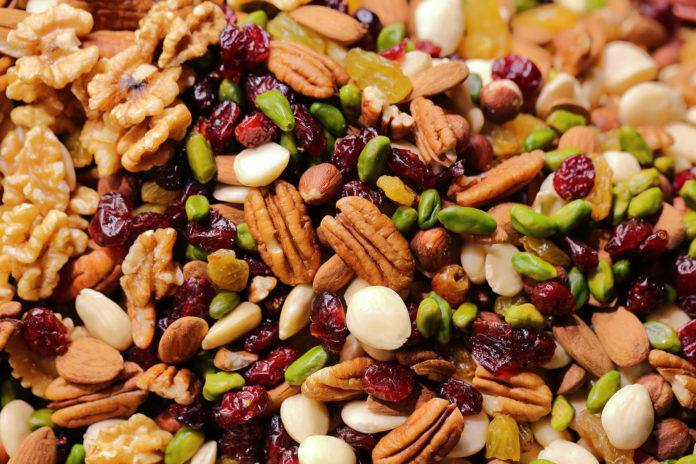Statement On Facebook Provived By Toby Amidor
Many folks believe that caffeinated drinks cause dehydration and therefore don’t count towards your daily fluid intake. I see this nutrition misinformation regularly online, as does Samara Abbott, MSEd, RD, LDN and owner of G&G Nutrition Co. who says, “While caffeine does have a mild diuretic effect, studies show that moderate intake of caffeine is not actually dehydrating to the body.” It’s really about the total caffeine you take in throughout the day, as well as the healthfulness of the beverages you’re consuming. According to the 2015-2020 Dietary Guidelines for Americans, moderate coffee consumption is 3 to 5 8-ounce cups, or no more than 400 mg of caffeine per day. This is based on a standard brewed cup of coffee, which contains 95 mg of caffeine per 8-ounce cup.
Answer To Above Statement
The reason why coffee as well as tea are difficult to count as daily fluid intake is because Tea And Coffee Are The Harshest Diuretics Without Prescription. They are not mild diuretics. While coffee might not totally dehydrate the body you can bet that it will make you urinate more often. Any food in moderation is good for you, however not everyone is built the same or has the same health issues, so to say that any amount of caffeine is good for every breathing American is a silly statement. People should test their tolerance of caffeine by starting with one cup of Organic coffee and seeing how their body handles it. Caffeine can be very harsh on the nerves. In addition they should test how their bladders are able to handle the coffee or any other diuretic. And what does moderate consumption has to do with anything here?

Myth: You Don’t Have to Eat Fruits and Vegetables If You Take a Multivitamin
The 2015-2020 Dietary Guidelines for Americans points out that about 90% of Americans don’t meet the recommended daily intake of vegetables, while approximately 85% don’t meet the recommended daily intake of fruit. Taking a multivitamin doesn’t mean that you get a pass on your daily fruits and vegetables.Lauren Manaker, MS, RDN, LD and author of “Fueling Male Fertility,“ agrees. “While multivitamins provide many nutrients that are available in produce choices, they do not deliver the exact same quality and quantity that fresh foods provide.” Fruits and vegetables are rich in antioxidants and phytonutrients that provide an array of health benefits, plus they’re often a great source of fiber. “Skipping produce may mean missing out on a fiber boost that your body may desperately need. Multivitamins may fill gaps in people’s diets, but they do not replace the need to follow the dietary guidelines.”
ANSWER TO STATEMENT ABOVE
Toby, you finally got one right!!!Myth: Dried Fruit Is Bad for You
Dried fruit is often labeled as being rich in sugar and lacking nutrients, and oftentimes people are told to avoid them. According to Philadelphia-based nutrition consultant Kelly Jones, MS, RD, CSSD, “Dried fruit contains the same amount of sugar as its whole fruit counterpart, but the standard portion is smaller.” For example, by dehydrating 1 cup of grapes, you now have a 1/4 cup of raisins. It’s not that there is more sugar. It’s just less liquid. “By being mindful of this, people may actually be able to increase produce consumption by choosing dried fruits with no added sugar so that they have an easy option for a snack on the go – and a backup in their pantry if they run out of fresh fruit during a busy week,” Jones says.
ANSWER TO STATEMENT ABOVE
I believe that the dried fruit people are referring to is dried fruit that is purchased in grocery stores that are LOADED with additional sugar. As matter of fact you can actually see the sugar granules when you hold the dried fruit in your hand. THAT DRIED FRUIT IS BAD FOR YOU. The dried fruit I believe you are referring to is the fruit that one dries at home, and for that you are correct.
User data were selected from one month from public posts on two popular Facebook fitness groups. Both groups were short-term programs that set extreme guidelines for fitness and nutrition. Researchers examined the data for harmful health messages using an individual coding strategy with inter-rater reliability (Kappa =0.92).
RESULTS:
Majority (88.6%) of messages analyzed promoted harmful health messages. Common categories of messages included losing weight/fat, promoting dieting/restraint, and harmful body messages, which promoted unsafe ways to attain certain body types.
CONCLUSIONS:
The data analyzed in this study represent overwhelmingly negative commentary relating to harmful health and body messages. Messages in this study normalized dysfunctional behaviors and promoted fixating on certain body parts and objectifying bodies. These Facebook groups, though intended to be a sort of online support forum, provide an open space for body negativity and promotion of extreme behaviors for the sake of thinness. Most concerning, participants of these programs, which are advertised as promoting health, are expressing unhealthy thoughts and behaviors surrounding food, exercise, and body image. Given the ease of accessibility to this content using online platforms, these harmful messages can reach large groups of people and continue adding to a culture that values physical appearance to the detriment of health.
© Copyright – Hector Sectzer

















